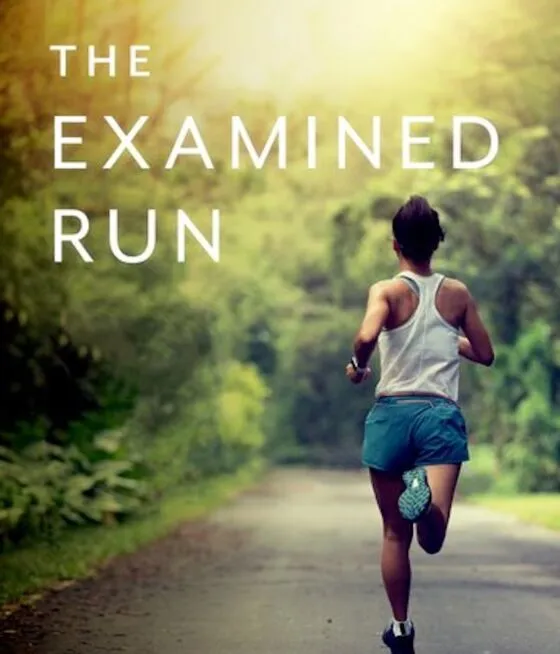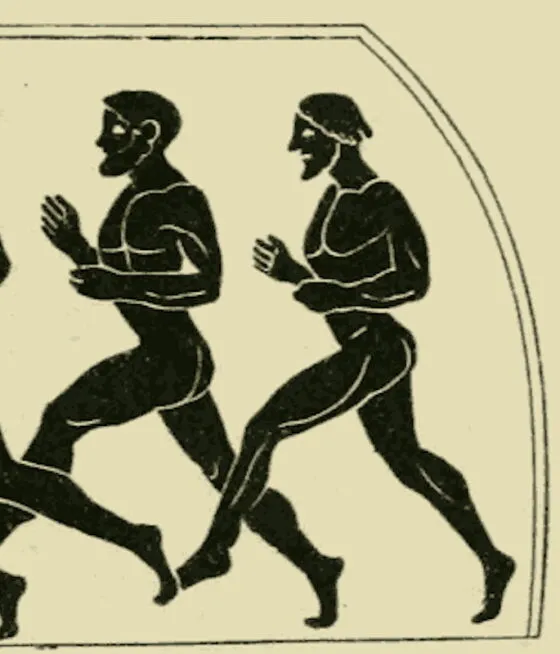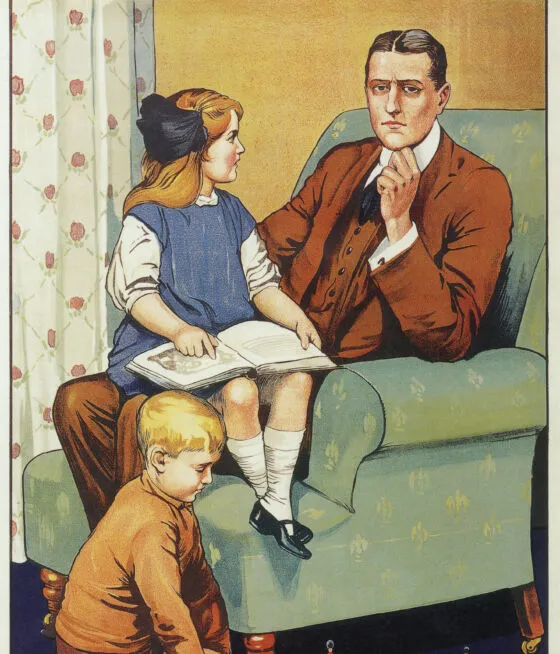
An interview with Sabrina Little
JMC Resident Historian Elliott Drago sat down with Jack Miller Fellow Sabrina B. Little (’19) to examine the exciting life and research of a running philosopher. Dr. Little is assistant professor in the Salmon P. Chase Center for Civics, Culture, and Society at Ohio State University.
ED: What inspired you to become a philosopher?
SL: I had early exposure to philosophical texts in my rural public high school, which had a strong humanities program. We read Plato, Rousseau, Montesquieu, and Dante. I did not know this as “philosophy.” I knew it as history and literature. After high school, I attended the College of William & Mary. I was afforded the opportunity to take a philosophy course as a general education requirement. I loved it. Previously, I considered myself a science and math person, so it felt like a big departure for me to major in something else.
I liked that the discipline was precise and analytical but also let me use my imagination. I loved that the texts were difficult. I appreciated the discipline of writing structured papers. Before I started taking philosophy courses, I would start essays and get lost. I never knew what was relevant to include. In philosophy, you define your terms and defend claims. Learning to write in this way helped me to discipline my thinking. I also enjoyed participating in a tradition of inquiry. It was fun to ask the same questions about what it means to be human that people have been asking for thousands of years. I liked philosophy enough that I subsequently pursued a master’s (Yale Divinity School) and a doctorate (Baylor University). I hope to teach philosophy for the rest of my life.
The Examined Run
ED: Tell us about the inspiration behind your book, The Examined Run. What is the central argument, and what was your favorite insight or primary source that you uncovered while writing it?
SL: During graduate school, I coached distance running at a classical school in Waco, Texas. It was a school that took character education seriously, and this extended to the athletic department. As coaches, we were tasked with incorporating virtue formation into athletic training. People often speak about how sports can form character, which was something I took for granted. But I never considered how, in precise terms, this might occur. I also never considered the opposite—the possibility that daily athletic training might reinforce vices, like envy, pride, and intransigence. My actions, the habits of attention I cultivated, and my emotional responses to sport might translate into the rest of my life and make me a worse student, citizen, and friend.

At the same time, I was writing a dissertation on character development. Plato and Aristotle both name physical training (alongside poetry) as an imperative of youth, for virtue development. The idea is that sports can help learners love the right things and become disciplined enough to be teachable. It was fruitful to read these texts while attempting to coach for virtue.
Studying character education also transformed my relationship with my own running, which I was doing professionally at the time. Acquiring a grammar of virtues and vices helped me to better see myself as an athlete, and to name my strengths and foibles. As I struggled with racing tactics, I realized that what I needed to work on was a virtue—patience. When I had trouble ‘staying in place’ during long runs—wanting to do anything else rather than continue running—I assumed my difficulty was insufficient fitness. In reality, this internal busyness was a manifestation of the vice of acedia. Learning about virtues and vices helped me to self-assess with greater honesty. Also, moral character is often performance-relevant. I realized I could not ignore my character if I wanted to improve as an athlete.
I wrote The Examined Run to share these ideas—to invite others into a tradition of inquiry about character and sport. I also wanted to provide a road map for what it might look like to use sports as a laboratory for virtue for athletes and coaches.
Great-souled and soled
SL: In writing this book, my greatest personal lesson concerned the virtue of magnanimity, or being great-souled. Thomistic magnanimity involves well-ordered striving—aiming for great feats, with humility and acknowledged dependence on others. The running world (and culture more broadly) has an uneasy relationship with excellence. It seems like we can’t decide whether aspiration is presumptuous or something we should celebrate as admirable. We praise great feats once they are completed. Yet we also sometimes speak as though setting big goals or wanting to be excellent is a bad thing. We speak as if humility requires that we set modest objectives and act as though we have low self-esteem, deflecting compliments and suppressing aspirations.
Considering yourself worthy of the great things that you are, in fact, worthy of is not a vice. It is a classical virtue—magnanimity. If done well, striving is compatible with a good character. That was something I learned in writing my book.

ED: How do you define “virtue,” and can you offer one or two examples of how ordinary people can practice being—or becoming—virtuous in everyday life?

SL: Virtue (arete) means excellence. Virtues, such as patience, honesty, fortitude, and perseverance, make us better instances of our kind, as human beings.
For Aristotle, moral virtues are formed largely through practice. He writes, “For the things we have to learn before we can do them, we learn by doing them, e.g., men become builders by building and lyre players by playing the lyre; so too we become just by doing just acts, temperate by doing temperate acts, brave by doing brave acts” (NE 1103b).
To become a builder, we build. To become just, we perform just actions. We have to do them to be them. This takes the guesswork out of character development: If you want to improve your character, you have to practice being better.
The idea that we become excellent by intentional practice has a kinship with sports. In sports, we practice. We show up daily with the set intention to improve. It is relatively easy to use sports for virtue development. For example, courage involves experiencing fitting fear concerning risks. To grow in courage as a cowardly person, you might take greater risks in racing, learning to manage fear in those moments. Alternatively, if you are reckless, you might take fewer risks, inclining yourself closer to the virtue of courage.
Outside of sports, you can practice virtues in other activities—like music, schoolwork, or gardening. The key is to be intentional. People often have deliberate plans when it comes to improving in their sport or in music. Then they throw their hands up when it comes to character, hoping it will all work out. This is a mistake. A good character is not formed by accident.
ED: Describe your work on “virtue developmental emotions.” How might virtue emerge from emotions we don’t typically associate with moral development?
SL: I write a lot about moral emotions, such as shame, anger, guilt, and emulation, that inform our moral judgments and help us to see and respond to others in fitting ways. Through this research, I noticed that that many emotions change across moral development, both in what they construe (or perceive) about the world and the role they play in our lives.
Guilt and moral development
SL: An example is that guilt ‘sees’ that we did some bad thing and is accompanied by a negative feeling. Guilt can motivate us to correct our bad actions or perform good ones. However, when we perform good actions because we feel guilty, we are motivated to resolve first-personal distress—our own bad feelings. These good actions are not about the other people, which disqualifies them as being virtuous. Also, presumably a virtuous person requires less course correction from guilt because he or she is already doing the right thing.

In the article you mention, I introduced a class of emotions called Virtue Developmental Emotions. I described their developmental trajectory and assessed whether they change form or become less salient in the virtuous person.
I also have a separate article on the value of shame for character development, which is a somewhat countercultural position in an academic landscape that is largely hedonic and anti-shame. This summer, I am also writing a paper on the developmental trajectories of guilt and shame in Christian spiritual formation. Does the mature Christian feel more or less shame than the new Christian? Is shame in the Christian context different than in other contexts, since the Christian believes she is disemburdened from having to save herself? I love thinking through these kinds of questions.
ED: What advice would you give to scholars who want to write for public audiences or for students?
SL: Have a friend read it who is not an academic. They will tell you if it is boring.
The more I teach undergraduates, the easier I find it is to write for the public. My public writing voice and my teaching voice are the same. I just imagine that I am writing for my students. However, public writing is definitely a different skill than philosophical writing. When I write for peer-reviewed publication, writing feels like defensive driving—having to steer myself around various objections and anticipate misreadings. In public writing, I do more showing than telling. I use stories, which is a Socratic method. Also, in public writing (and in teaching) I tell jokes. Whenever possible, tell jokes.
ED: Is it wrong—or at least a little silly—to assume that you spend much of your time pondering philosophical questions while running across (and for) America? If not, what has your engagement with philosophy taught you about America’s founding principles and history?
SL: Running plays a significant role in my scholarship. When I run, often the ideas I am working through come more quickly, and they become geographically placed. For example, I will think through an idea while passing a mailbox. Months later, when I revisit the same idea, I remember it as placed by that mailbox, which is kind of fun. The longer I live in a place, the more ideas are out there on trees and in mailboxes.
Running also plays a significant role in my civic formation. This is by connecting me with the local community. Running together provides an opportunity to bond, to empathize, and to share experiences, unmediated by screens and technologies, which seems especially valuable today. It also makes me feel more connected to the city. I run the streets. I am aware of things that are going on outside, which is valuable as an academic. Otherwise, I would spend too much time alone in my office, writing.
Most significantly, running offers me practice in the pursuit of arduous goods. It offers practice in enduring so I can remain in difficult conversations, rather than running away. I can fix my attention on finish lines that seem far off, advancing toward them one step at a time. These are invaluable skills for citizenship.
Sometimes citizenship can feel like a series of difficult conversations with people we disagree with about divisive topics—injustices, broken systems and structures, reckoning with bad actions, and realizing we have conflicting visions of what a “good life” even means. We can give up on each other, polarize, and only talk to people we agree with. Or, we can remain in hard conversations, work together, and build a better shared future, even when the finish line seems far off.
This is something I learn to do through running—to ‘stay in place’ through hard things. Running has played a significant role in shaping me as a citizen.
ED: Thank you for your time!
Dr. Elliott Drago serves as the JMC’s Resident Manager of Network Engagement & Resident Historian. He is a historian of American history and the author of Street Diplomacy: The Politics of Slavery and Freedom in Philadelphia, 1820-1850 (Johns-Hopkins University Press, 2022).
